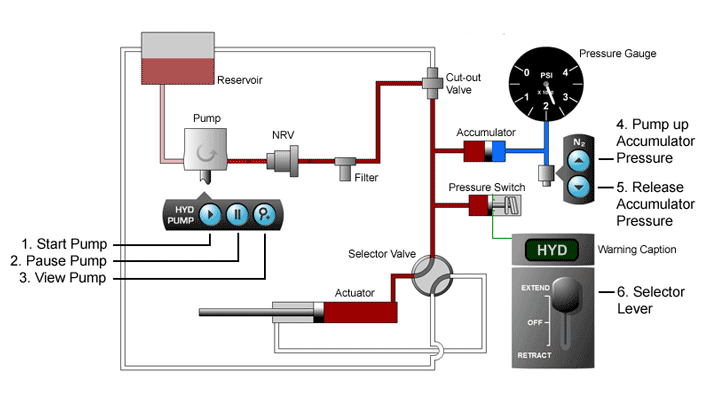
eLearning | Computer Based Training | Systems Simulation
Aircraft hydraulic systems provide a source of power for flying controls, undercarriage and braking systems. Inputs from cockpit controls are used to adjust valves which control the flow of pressurised hydraulic fluid to actuators which then move the control surfaces or landing gear extension mechanisms.
Systems have their own reservoirs of hydraulic fluid from which the fluid is pumped around the system. The pressure within the system can be continously monitored from pressure gauges and should this system pressure fall too low, then pressure switches cause warning indications to light and attract the pilot's attention.
For students learning about aircraft hydraulic systems for the first time, our simulated generic system (below) is an ideal teaching tool.

This fully interactive simulation of a basic aircraft hydraulic system provides complete control of the pump, control lever and accumulator enabling instructors to clearly demonstrate the purpose and operation of the system components and the cockpit controls and indicators.
Click these buttons to start or pause the pump. Note that the hydraulic system will not become fully operational until the accumulator is sufficiently pressurised.
Click this button to view the internal operation of the pump. The pump will appear within a new pop up window which can be maximized to full screen if required.
Pumping up the accumulator to the sufficient level enables the nitrogen within the accumulator to absorb the changes in the hydraulic system pressure during operation of the actuator and also the pressure ripples from the pump operation.
Dragging the selector lever to the EXTEND or RETRACT position rotates the selector valve to direct hydraulic pressure to either the right side or the left side of the actuator.
If you require any simulation of hydraulic, electrical or electronic systems for your training school then simply contact us!